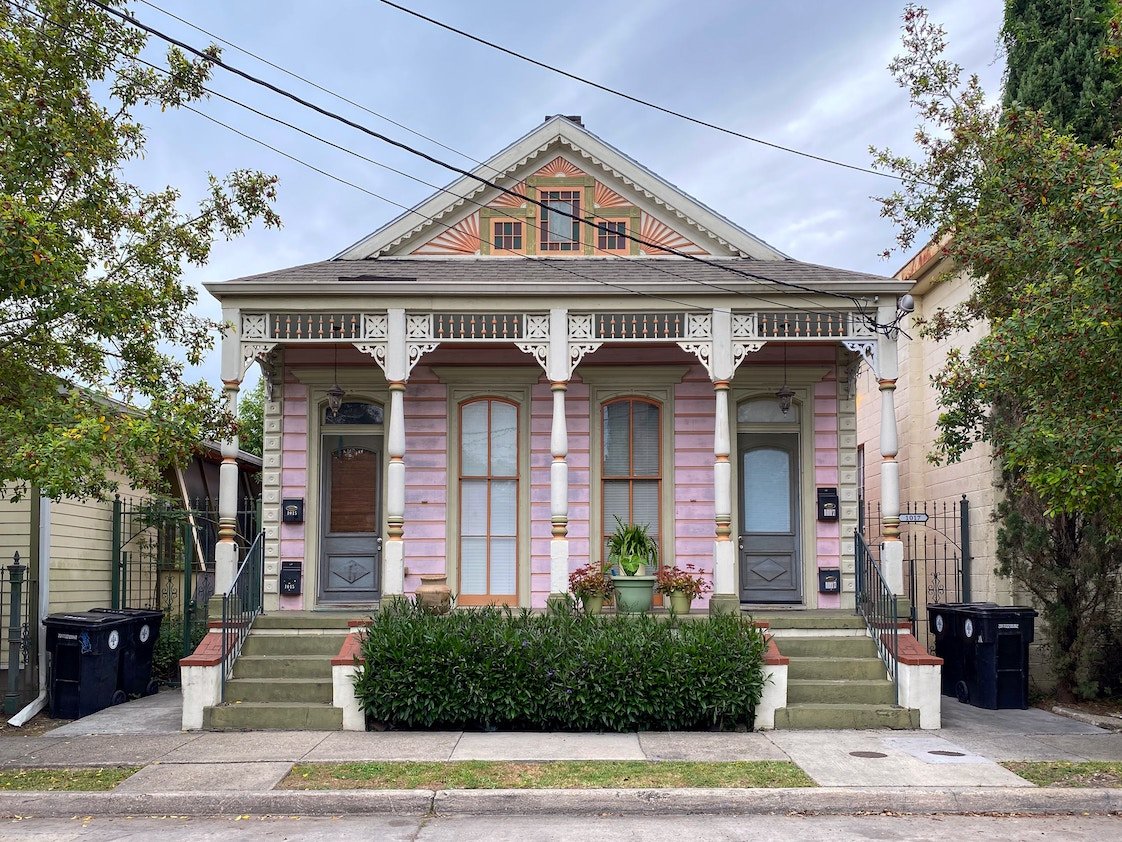Probate Property vs. Nonprobate Property
Estate planning is way more than a will. When writing a will, it’s crucial to understand that it only controls certain parts of your estate. Let’s dive into the difference between probate property and non-probate property.
Estate Planning is WAY MORE than a will.
I’ve said it before, but it bears repeating: an estate plan is way more than a will.
Many people think that if they write a will, then they’ve completed their estate plan.
This just simply isn’t true.
A will is probably the most discussed aspect of an estate plan. Therefore, it’s common for folks to think that a will controls all your stuff and where it goes upon your death.
Oh, if only it were that simple.
While a will is a major player in your estate plan, it is still only a part of what you’ll need to fully cover your bases.
As I will always remind you, there is no estate planning crystal ball.
When it comes to designing a successful estate plan, your goal is to protect yourself and your family in the event of the inevitable unknown.
When writing a will and creating an estate plan, it’s important to understand what is and isn’t controlled by your will.
I know you want what’s best for your family, especially after you're gone.
So, let’s learn exactly what a will controls - and what it doesn’t.
In order to do that, we need to discuss probate property and non-probate property, and the difference between the two.
Isn’t writing a will important?
Yes, it is very important to write a will. And, it is vital to have a last will and testament at the time of your death.
However, what’s important to understand about estate planning, is that a will is only a portion of what you’ll need to create a successful estate plan.
But, don’t worry, by getting clear about what an estate plan actually is (which is what every blog post I write is actually about), you’ll be far more prepared than most when it comes to taking care of your loved ones.
Last week, we talked about community property vs. separate property.
In that post, I get really detailed about how to determine what is and isn’t considered community and separate property - especially within marriages.
In this post, we’re discussing probate property vs. non-probate property. Essentially, these are the property types that determine what will and won’t be covered by your will.
Breaking these concepts down will help you understand how to write the best will possible for your situation.
Understanding these legal designations will also help you craft an estate plan that works best for you and your values.
Want to get started on your estate plan without all the paperwork?
Download the free Will in a Weekend Worksheet now
to hand write a Louisiana will in the time it takes you to go to the grocery store this weekend.
Where do I start with estate planning?
Writing a will is a great place to start.
But, in order to cross the estate planning finish line, you’ll need to consider different scenarios and think through how your intentions may affect your loved ones.
Last week, we talked about the difference between community property and separate property.
If you haven’t already, go back and take a look at that post, as it clarifies common misunderstandings when it comes to Louisiana property rights within and out of married life.
Today, we’re going to talk about the difference between probate and non-probate property.
Specifically, we’ll address the fact that writing a will, even the most thorough and painstaking will, can only address certain aspects of your total property inventory.
Most basically:
Probate property refers to property that is addressed by your will.
Nonprobate property refers to property that falls outside the jurisdiction of your will.
And, more accurately: your will only deals with probate property that you own at your death.
Property that is not probate property is fittingly called nonprobate property and passes outside of your will.
Plan Today for Peace of Mind Tomorrow
The Basics of Estate Planning.
Before we get into it, let’s clarify some basic terms that we’ll need to know in order to fully understand probate vs. non-probate property.
Beneficiary: someone named in your estate plan, retirement account, trust, or other asset account, who will ultimately receive the benefit of your assets.
Usufruct: one way that property can be held in Louisiana. It divides the property between a usufructuary and a naked owner. The usufructuary has the ability to use the property and get the rent or income from the property for a certain term (usually their lifetime), and at the end of the term, the property automatically passes to the naked owner. It is very similar to a life estate in other states.
Intestate or intestacy: refers to when a person dies without a valid will or their will doesn’t dispose of all of their property. When someone dies without a will, they are said to have died intestate. In Louisiana, when someone dies without a will, their assets will be distributed by the state of Louisiana according to the laws of intestacy.
Succession aka Probate: a court-supervised process in which your will is presented to the court, and the court authorizes your executor to take the actions to gather your property and distribute it to the people named in your will. Or if there isn’t a will, someone will be appointed as an administrator and authorized to gather your property and distribute it as determined under Louisiana law.
Probate Property: property that can be passed along via a valid will.
Nonprobate property: any property where you don’t have to go through a legal proceeding to officially transfer that property at your death.
If you want to learn the 5 easy steps to creating your own valid handwritten will in Louisiana, then this FREE step-by-step is for you.
What is probate property?
Probate property is any property that must go through a court-supervised process to transfer the property to the beneficiary or heir at your death.
Common examples of probate property:
real estate
vehicles
bank accounts
furniture, jewelry
stock
business interests
It’s important to note that even if you don’t have a will, your stuff will still be legally divided into probate or non-probate property categories. Then, it will be distributed according to Louisiana intestate laws.
Simply put, your will only affects probate property.
If you have a will: your will is presented to the court, and the court authorizes your executor to take the actions to gather your property and distribute it to the people named in your will.
If you don’t have a will: someone will be appointed as an administrator and authorized to gather your property and distribute it as determined under Louisiana law.
If you have a will, and depending on the situation, it is possible to avoid opening the succession to fulfill the terms of someone’s estate plan. In Louisiana, a succession is the legal process of administering the estate of a deceased person. Other states commonly call this process probate.
However, if you die without a will, it is often necessary to go to court in order to authorize and distribute your stuff in accordance with Louisiana intestate laws.
What is Nonprobate property?
Nonprobate property is any property where you don’t have to go through a legal proceeding to officially transfer that property at your death.
Nonprobate property is the property that is transferred by beneficiary designations, such as life insurance or retirement plans.
Other types of non-probate property are property that is transferred by contract.
Common examples of non-probate property are:
Life insurance and retirement accounts transferred by beneficiary designations.
property that is subject to a usufruct. Upon the usufructuary’s death, this property will automatically transfer to the naked owner without any legal proceedings.
If you hold real estate outside of Louisiana as joint tenants with rights of survivorship (JTWROS), this property automatically passes from one person to another at death.
Bank accounts with TOD or POD designations (not very common in Louisiana because of our law of forced heirship)
Any other property that is payable on death to someone else like US Treasury obligations.
If you want your retirement accounts to pay out to certain loved ones, it’s important to keep your beneficiary designations updated and accurate separate from your will.
If you’re looking to handwrite your own will, then sign up to get my free Will in a Weekend Worksheet instantly.
Let’s recap what we’ve learned about probate vs. non-probate property:
Your will only deals with probate property that you own at your death.
Probate property is any property that has to go through a court-supervised process (called succession aka probate) to be transferred at your death.
Nonprobate property is any property that is transferred by contract or beneficiary designation that is not subject to probate (a court-supervised process) at your death.
Accurately assessing your property is key to a successful estate plan.
It is so important to accurately assess and inventory your belongings before you start writing a will.
Incorrectly identifying probate and non-probate property can lead to inaccurate and unsuccessful estate plans.
Make sure you update beneficiary designations to best reflect who you want things like retirement accounts to pay out to upon your death.
Remember, even if you include something in your will that states who you want these types of accounts to go to, the beneficiary designation in the account paperwork will ultimately determine where the property goes.
Additionally, understand that the succession (aka probate) process will deal with the distribution of your probate property (outlined in your will) upon your death.
Understanding the difference between probate property and non-probate property can ensure that your stuff goes where you want it to.
While there is no crystal ball, there are simple steps you can take with an estate planning attorney that will help you organize and fully understand everything you have and where it’s going.
Happy Planning!
Take Care,
Addie
It’s always a good time to plan for your family’s future.
FAQ
Q: What is probate property?
A: Probate property refers to property that is addressed by your will.
Common examples of probate property:
real estate
Vehicles
bank accounts
Furniture
Stock
business interest
Q: What is nonprobate property?
A: Nonprobate property refers to property that falls outside the jurisdiction of your will.
Common examples of non-probate property:
Life insurance and retirement accounts transfered by beneficiary designations
property that is subject to a usufruct. Upon the usufructuary’s death, this property will automatically transfer to the naked owner without any legal proceedings.
If you hold real estate outside of Louisiana as joint tenants with rights of survivorship (JTWROS), this property automatically passes from one person to another at death.
Bank accounts with TOD or POD designations (not very common in Louisiana because of our law of forced heirship)
Any other property that is payable on death to someone else like US Treasury obligations
Q: Which documents will I likely need to create a complete estate plan?
A: It can vary from client to client, but generally, folks looking to make an estate plan can count on needing some, if not all, of the following documents:
Last will and testament
Living trust
Beneficiary designations
Financial power of attorney
Advance healthcare directive/healthcare power of attorney
Insurance policies (health, life, car, home, etc.)
Titles and property deeds (car, home, boat, rental property)
Proof of identity (social security card, prenup agreement, birth/marriage/divorce certificates, etc)
Digital logins and passwords (yes, all of them)
Funerary instructions (although I believe these should be given directly to your loved ones prior to your death.)












